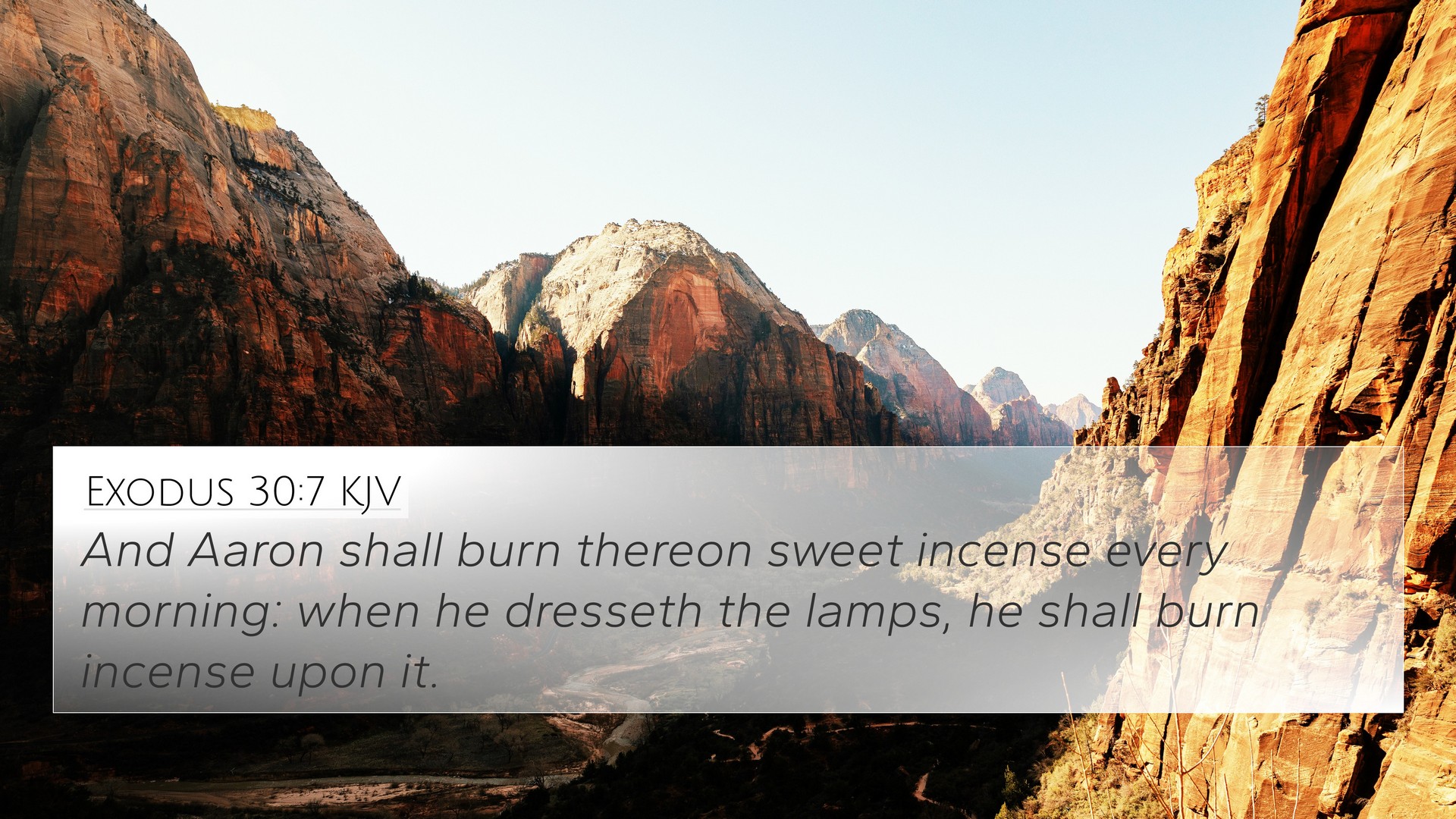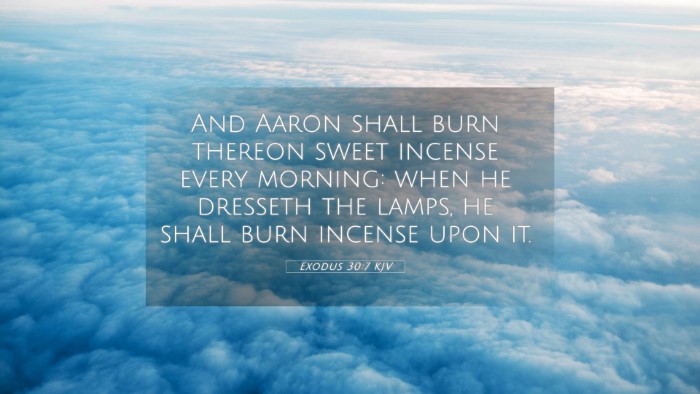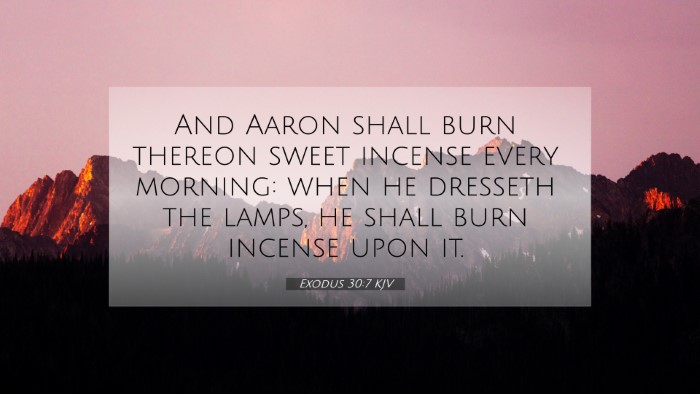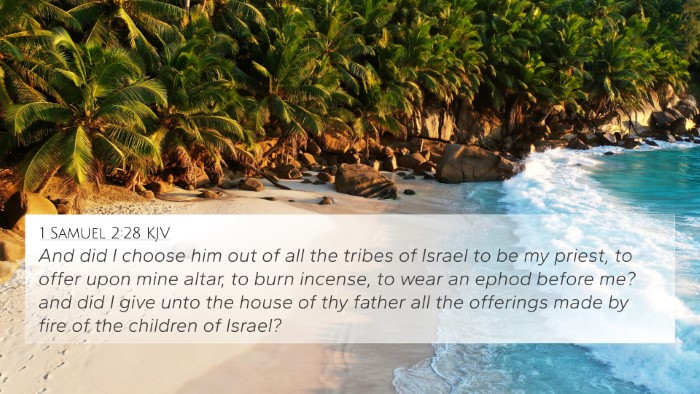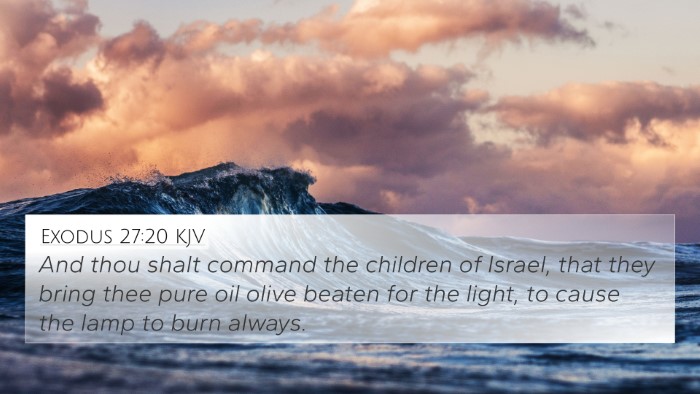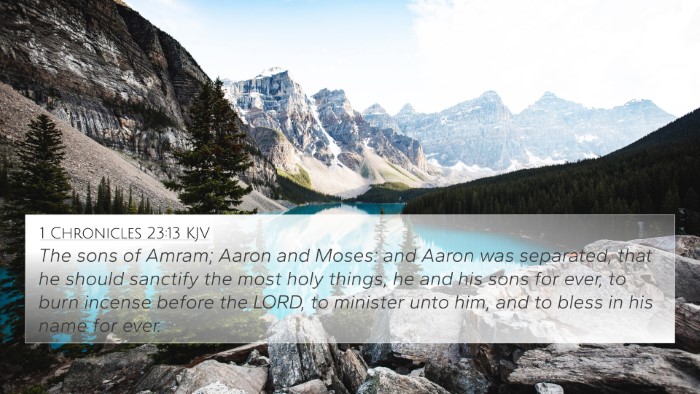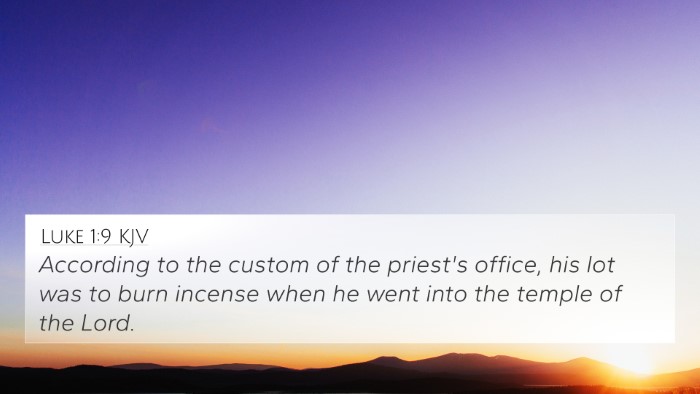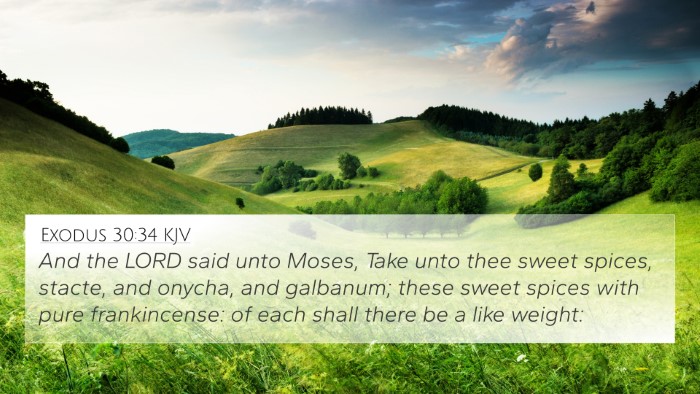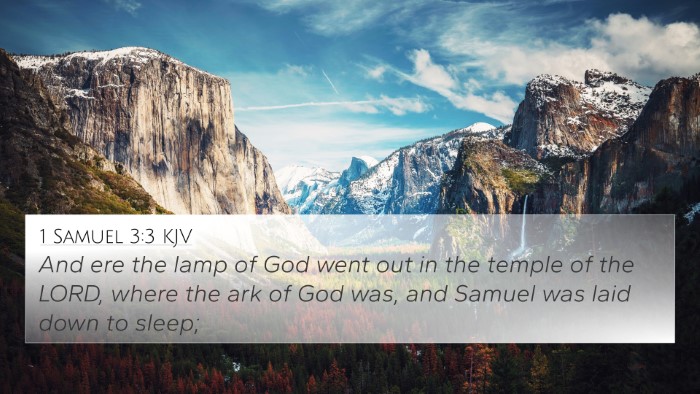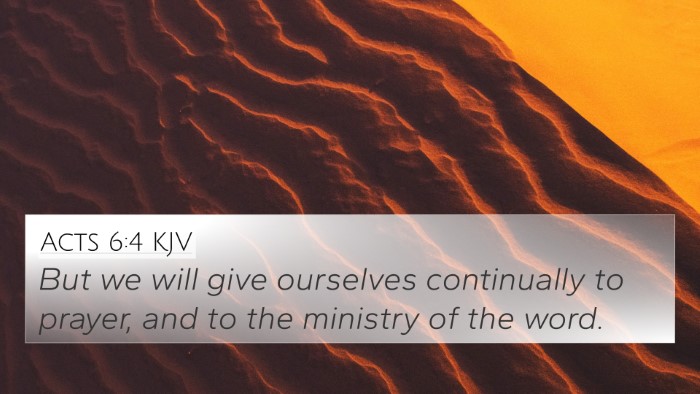Meaning and Interpretation of Exodus 30:7
Exodus 30:7: “And Aaron shall burn thereon sweet incense every morning: when he dresseth the lamps, he shall burn incense upon it.”
Overview
This verse details the specific instructions given to Aaron regarding the altar of incense in the tabernacle. It emphasizes the importance of regular worship and the fragrant offering that symbolizes the prayers of the people ascending to God.
Commentary Insights
Matthew Henry
Matthew Henry notes that the burning of incense symbolizes prayer and is meant to be a continual practice, just as the priests are to attend to their duties daily. This act of worship not only represents the prayers of the people, but also stresses the ongoing relationship between God and His people.
Albert Barnes
Albert Barnes elaborates on the significance of Aaron offering incense in the morning and evening. He indicates that this practice was a divine command, signifying that God desires a constant and sincere devotion from His people, mirroring the dedication required in other aspects of worship.
Adam Clarke
Adam Clarke offers insights into the materials and fragrance of the incense, symbolizing the purity and holiness expected in approaching God. This aspect defines the nature of worship required, reinforcing that offerings to God should be of the finest quality, reflecting the honor due to Him.
Thematic Connections in the Bible
The themes of worship and prayer represented in Exodus 30:7 are echoed throughout the Scriptures. Here are some thematic Bible verse connections:
- Psalm 141:2 - "Let my prayer be set before you as incense..." which explicitly ties the idea of prayer to the act of burning incense.
- Revelation 5:8 - "...they were holding golden bowls full of incense, which are the prayers of God’s people," highlighting the continuation of this theme into the New Testament.
- Luke 1:10 - "...the whole assembly of the people were praying outside at the hour of the incense," showing active prayer in worship contexts similar to Aaron's duties.
- 1 Timothy 2:8 - "I desire, therefore, that the men pray everywhere, lifting up holy hands, without wrath and doubting," promoting the continuity of prayer as a form of worship.
- Hebrews 13:15 - "Therefore, by Him let us continually offer the sacrifice of praise to God," which connects the act of worship through offerings.
- Matthew 2:11 - The wise men presented incense to Jesus, recognizing His divine nature and reflecting the same reverence shown in the temple.
- John 14:13 - "...whatever you ask in my name, that I will do, that the Father may be glorified in the Son," tying prayer to the commandments of Jesus.
Understanding Cross-References
Cross-referencing Biblical texts can deepen understanding and reveal connections. Tools for Bible cross-referencing, such as a Bible concordance or a Bible cross-reference guide, are invaluable for exploring these relationships:
- Identifying connections between Old and New Testament teachings can enhance comprehension of ongoing themes.
- Comparative Bible verse analysis allows for a richer understanding of scriptural parallels.
- Using a Bible reference resource can lead to discovering lesser-known verses that support broader themes found in Exodus 30:7.
Conclusion
Exodus 30:7 encapsulates a profound aspect of worship through the act of burning incense—symbolizing prayer, devotion, and offerings pleasing to God. This verse serves as a connective tissue to many other scriptures that address themes of worship and prayer, thereby inviting believers to draw nearer to God through understanding these intricate Biblical connections.
